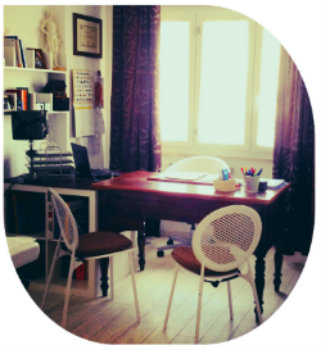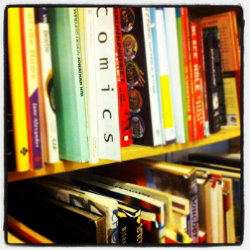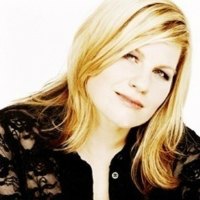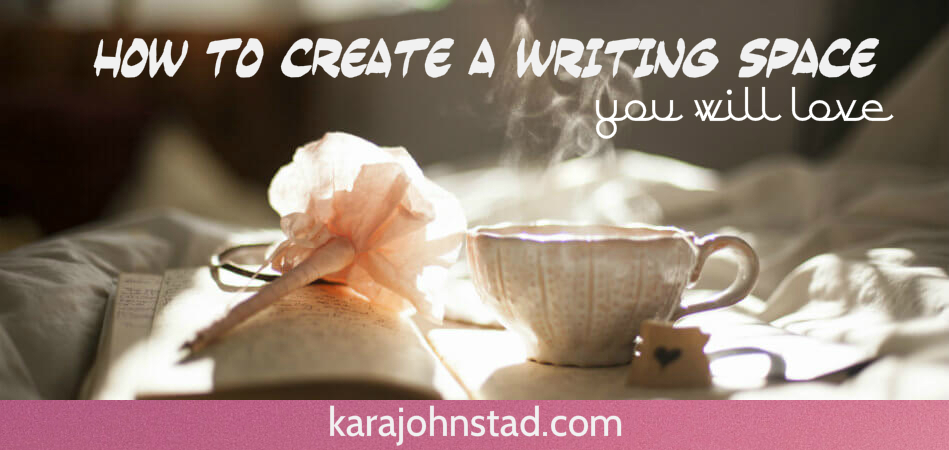How To Create a Writing Space You Will Love
Artists are intuitive people and work from the inside out. That is why, when you are setting up your writing space, you need to do it from the inside out. There are writers that write in bed or at the kitchen table. There are writers that have a little nook in the bedroom, and there are writers that work in a writer's shed. Many ways to approach it. Yet most experts agree, having a dedicated writing space, no matter how big or small, is key to getting more writing done.
The space you chose needn't be expensive. It is your imagination and brilliance that is creating art, not the fancy chair and desk.
Create your own writing space with whatever inspires you. The essence is: while writing you should surround yourself with things you love.
Keep it simple: Get rid of clutter and eliminate anything that can be a diversion. Forward the phone to the answering machine, turn off the mails and stop checking every five minutes your social media. Clear clutter from the room and surround yourself with things that you love. Remember your eye should stay on the page and not be pulled to a long task of to-dos.
If you are on the go, have a great journal tucked inside your bag. Buy yourself your favorite iPad cover that you like and keep your favorite pens close by. If you are at home, hang up pictures that inspire you, create a great music collection to get you focused for each writing session, find a comfortable chair and solid desk to write on.
Here is a list of things for you to ponder upon while making your personal writing space. Music: Some people work well to music, others don't. I normally work in silence, but also have instrumental music that puts me in a deep flow space. Find out what works well for you and keep a good collection of music in your room.

Book storage: It is nice to have a place for books close by. Even if you type on your computer and read a lot online, I still find being surrounded by your favorite books magical. When you need a break, browsing through a few good poetry books or paging through a photo album can be enough to ignite new ideas and get the juices flowing again. I have an old wooden closed cupboard where I keep all favorite poetry books and autobiographies of people that inspire me. I have a second place of shelving for all my journals and songs that I am working on or have finished.
An Artist's Altar: I have my artist's altar in a place I can always see while I am working - whether at the piano or typing. I try to pick up fresh flowers at the market each week and have a collection of vases I adore, small items that connect me to nature and friends. The items remind me that I am not writing for an industry, I am writing my books and music for a deeper connection to source.
Artwork: Surround yourself with beauty. Writers love to have their imagination triggered and go on journeys into other worlds. One of the quickest way to do this is through visuals. Add your favorite painting. Another great idea which I enjoy is vision boards string hung with postcards and photos or clipboards above your desk where you can add images and lyrics of what you are currently working on.
Paper and Pens: I think there are two ways to go with paper. I know artists that buy stacks of legal pads and notebooks and scribble down their thoughts with delight. Make it a habit to fill at least one legal pad a day. I know other writers who have a leather bound journal in their bag and work with thicker paper.
I always have a leather bound notebook in my bag and close by, I enjoy more writing on thicker paper where I can also draw and sketch, but truth be, I have started writing using the notes app on my iPhone and also have songs that were written on napkins and beer coasters when I had an idea and couldn't find anything else quickly enough to write on.
Pens I am very finicky about. I like pens that roll smoothly and fast. I like to stay in deep flow. I often write with colored felt markers. Find the pens and paper you love and use them often.
Storage: if you have filled all those notebooks and journals you are going to need a place for storage. A file cabinet, shelves, baskets. We, as writers, need storage to keep things quick and handy and keep the clutter out.
Somewhere to relax: It is nice to have somewhere to lie down and take naps in your writing studio. If you writing space is big enough, add a sofa and some pillows. I have also found it helpful to have a comfortable reading chair with a table next to it for a hot tea or good refreshing drink.
Natural lighting: Even though it can be tough at times with reflections off of the computer screen, lighting is very important. It is nice to look out the window and be able to give your eyes a break from the page.
Add a touch of extra luxury: I like different scents when I start writing. I use japanese incense and light candles before every writing session. I know writers that have a certain tea they like to drink, or a certain hand cream they enjoy, or even have their feet soaking in warm water underneath the desk and take a hot foot bath once in a while.
Spoil yourself silly.Create a writing space that will make you love sitting down at your desk and creating new work for our world.

Here's to your continued success. Stay Gold!

WANT TO USE THIS ARTICLE IN YOUR eZINE OR WEBSITE?
Please do! Just be sure to include this complete blurb with it.
VOICE VISIONARY, SINGER-SONGWRITER AND COACH KARA JOHNSTAD IS PASSIONATE ABOUT TRANSFORMING THE WORLD THROUGH THE POWER OF WORDS, MUSIC AND VOICE: She trains her clients to open their voices, write powerful songs and anthems, and create a lifestyle and business that allows them the freedom to create and live as successful, independent artists and entrepreneurs. www.voiceyouressence.com
photo credits
"Tea" by Carlis-Jean / unsplash.com
"Creative study / stockphoto
"Book shelf" by Kara Johnstad
CREATE YOUR VOICE EVENT
Spread the word. Share the love.
[borlabs-cookie type="btn-cookie-preference" title="Cookie Preference"/]
© 2016 KARA JOHNSTAD · ALL RIGHTS RESERVED · BUILT WITH LOVE BY VOICE YOUR BIZ™ | Login

